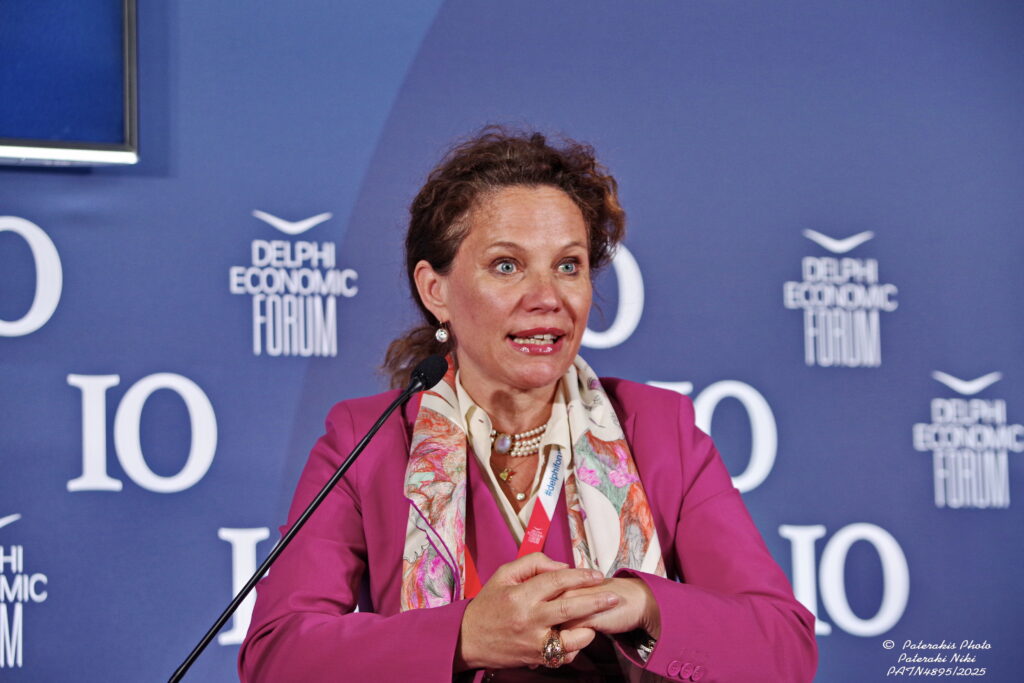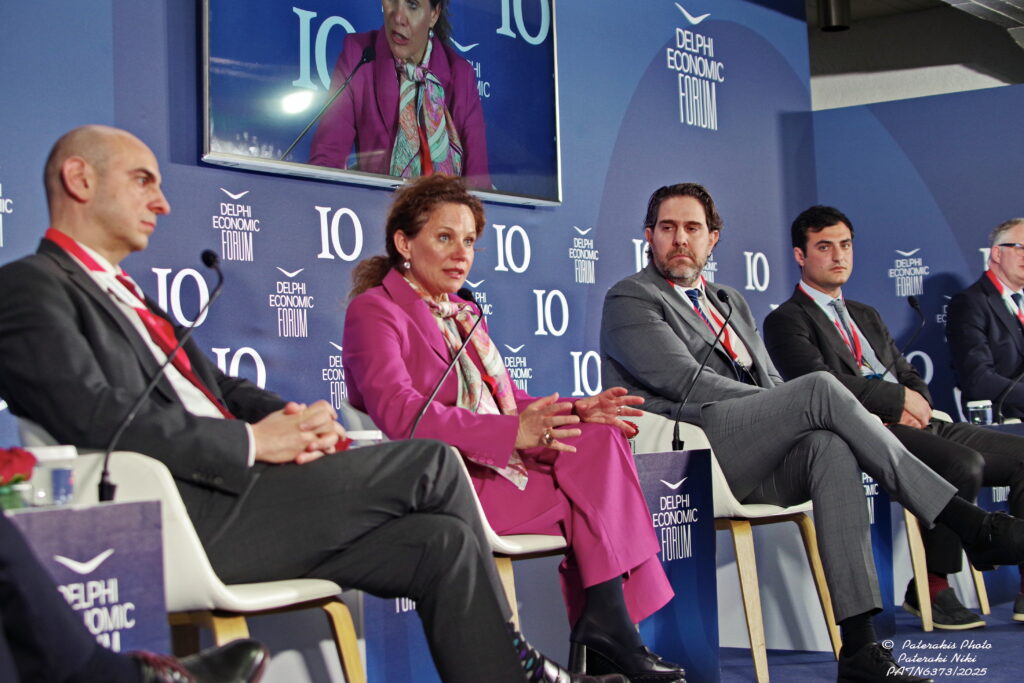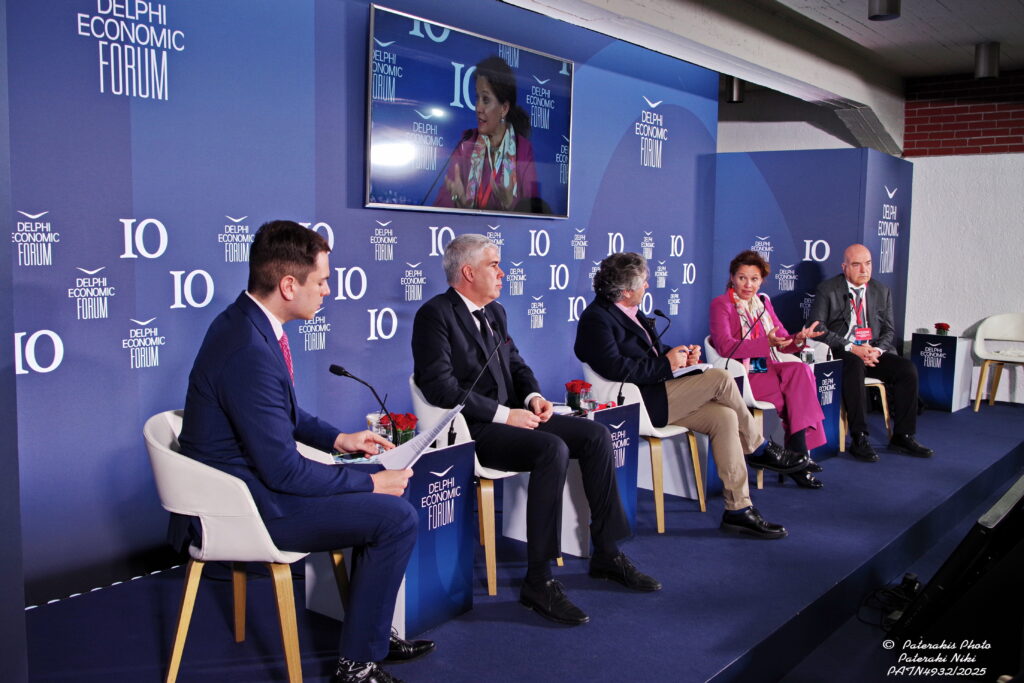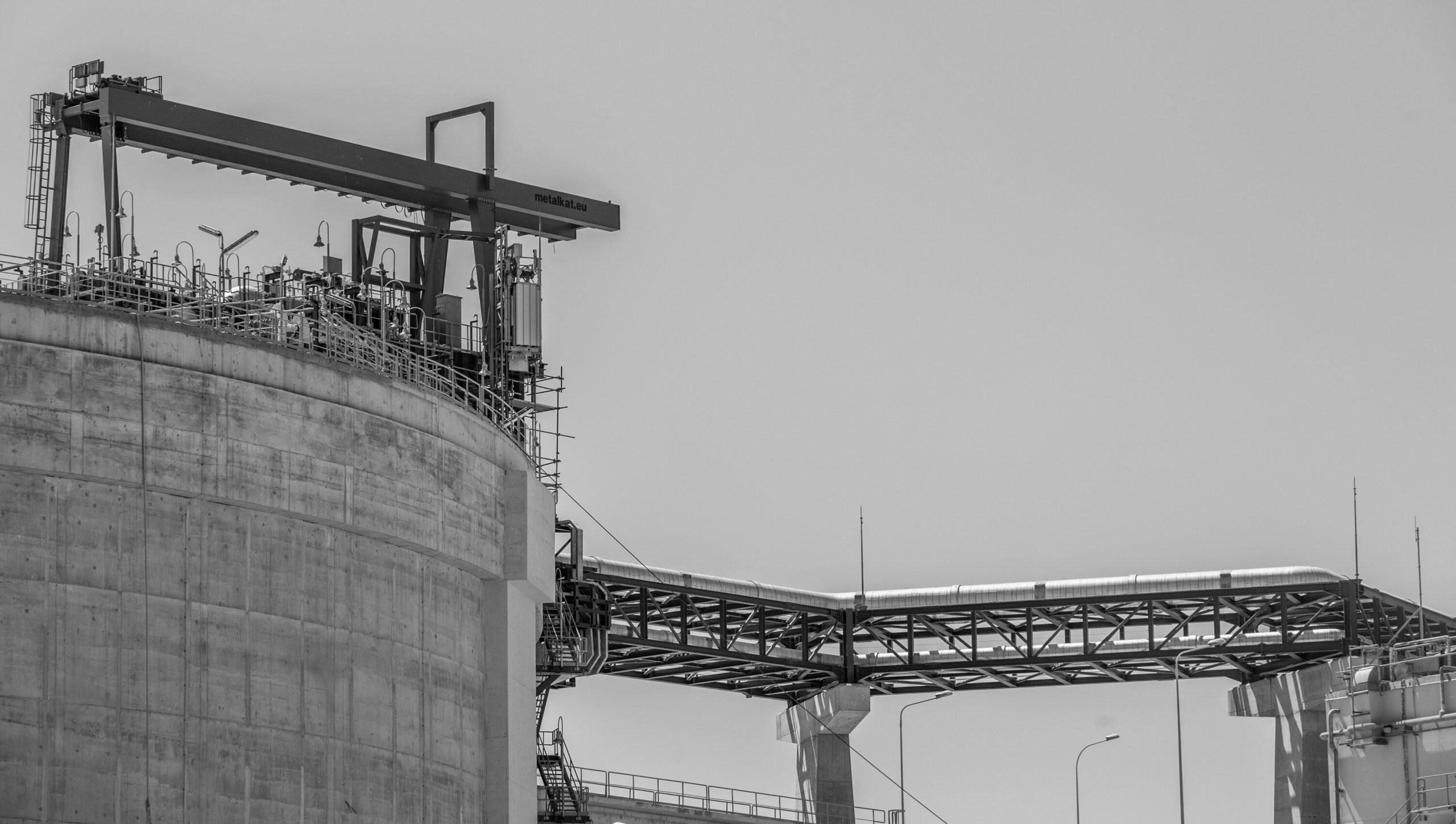During her intervention at the Delphi Economic Forum X, the CEO of DESFA underscored the need for a national and EU coordinated approach on CCS infrastructure development and a clear regulatory framework
Delphi, April 10th, 2025 – DESFA CEO, Maria Rita Galli, highlighted Carbon Capture and Storage (CCS) as a cornerstone of Greece’s and Europe’s decarbonization strategy, during her speech at this year’s Delphi Economic Forum, emphasizing the development of reliable, large-scale CO₂ transmission infrastructure as the critical enabler for scaling CCS technologies.
Speaking on the panel “Carbon Capture: From Concept to Solution,” Mrs. Galli stressed the importance of accelerating CCS deployment to meet EU climate targets. “CCS is no longer a future concept—it’s a present-day imperative,” she said. To that end, Mrs. Galli analyzed how DESFA is uniquely positioned to advance the development of CCS infrastructure in Greece, leveraging its decades of experience in gas transmission and cryogenic technologies. She noted that while many Greek industrial emitters are already securing EU support for carbon capture technologies, a critical infrastructure gap remains. “The missing link is the connective tissue—transport and storage. That’s where DESFA comes in,” Mrs. Galli stated.

To that end, the CEO of DESFA analyzed DESFA’s APOLLOCO2 project—already designated as a Project of Common Interest (PCI) by the EU—as a blueprint for building a cost-efficient, open-access, and cross-border CCS value chain. APOLLOCO2 – co-developed by DESFA and ECOLOG, aims to establish Greece’s first large-scale CCS hub by 2030, beginning with the capture of 3 to 5 million tonnes of CO₂ from industrial emitters in Attica and scaling up to 10 million tonnes in subsequent phases.
The initiative aims to link major emitters via a dedicated pipeline network to the Revithoussa LNG Terminal, where existing cryogenic infrastructure will be leveraged to liquefy CO₂ with up to eight times greater energy efficiency than traditional methods. From there, liquefied CO₂ will be shipped to offshore storage sites in Prinos, Ravenna (Italy), and potentially Egypt, drawing on the know-how of DESFA’s partners in maritime transport.
Mrs. Galli underscored that APOLLOCO2 is not just a decarbonization project, it is an integrated end-to-end system with regional coordination across the value-chain, offering a scalable, cost-effective platform that enables industries to comply with climate targets while maintaining competitiveness. “It’s a one-stop shop that removes key barriers and accelerates industry-wide decarbonization,” Galli noted. She also stressed the importance of a coordinated national and European approach for infrastructure development and the establishment of a clear and stable regulatory framework to facilitate said development, ensuring transparent and non-discriminatory access to them, especially to storage, which today consists of a limiting factor, increasing stakeholder and investors’ confidence.
Looking ahead, DESFA is preparing its application for the EU Innovation Fund 2024 Call, with submission set for April 24. The project is progressing through environmental permitting and deepening its collaboration with key industrial players. Given Greece’s limited domestic storage options, DESFA is also exploring cross-border storage partnerships in Italy, Egypt, and other Southeastern European countries.

The panel, moderated by Dimitris Papakanellos (EY-Parthenon), also featured Nikos Bozos (Heracles Group), Ilias Bekiros (Corinth Pipeworks), Jon Clark (EY UK), Nikolas Rigas (Energean/EnEarth), and Efthimios Tartaras (Hellenic Hydrocarbons & Energy Resources Management S.A.). Participants expressed broad alignment on the need to move from pilot projects to industrial-scale CCS deployment, emphasizing infrastructure readiness, regulatory stability, and cross-sector collaboration as key to delivering on Europe’s decarbonization goals.
The importance of regional cooperation in the field of infrastructure development for energy security is also crucial, as noted by the CEO of DESFA, speaking earlier in the panel “Energy Security: the role of Connectivity in a Shifting World”. In this context, she referred to the significant progress made in recent years in developing infrastructure that increases both the country’s import and export capacity to the North, from 2 bcm per year until recently to 5 bcm at the end of 2024, with the next target of 8.5 bcm at the end of 2025, including through the completion of three new Compression Stations (Komotini, Nea Mesimvria, Ampelia) within the year. Finally, commenting on the latest developments regarding hydrocarbon exploration in Greece, Ms. Galli stressed that this is a positive step that underlines the role of natural gas as one of the key pillars of a realistic, secure and economically sustainable energy transition.








